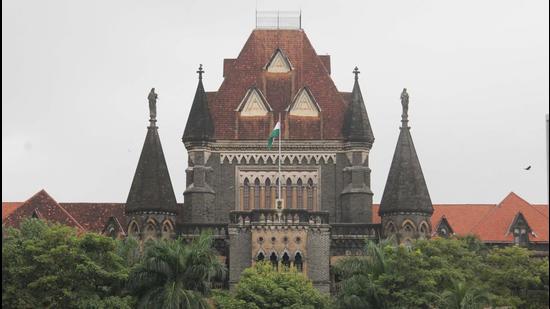Bombay high court commutes life sentence of husband as he did not intend to kill wife
The Bombay high court, while hearing the appeal, was informed that as the wife had refused to return to her matrimonial home and resolve the dispute, the husband hit her with whatever came in his hand
The Bombay high court (HC) recently commuted the life imprisonment sentence of a man, who was convicted for murdering his wife, to eight years after it was informed that the man had not intended to kill his wife when he assaulted her with a pestle. The HC, while hearing the appeal against the conviction by the trial court, was informed that as the wife had refused to return to her matrimonial home and resolve the dispute, the husband hit her with whatever came in his hand.

The HC held that in such circumstances the offence could not be considered without keeping in mind the emotions involved. Court added that as the man had lost his self-control and had assaulted her in a fit of rage he could not be convicted for murder. The court, however, held that as the offence was a culpable homicide, it sentenced him to eight years of rigorous imprisonment.
The division bench of justice Sadhana Jadhav and justice Sarang Kotwal while hearing the appeal of Ankush Chavan was informed by court-appointed lawyer advocate Lokesh Zade that the October 2016 conviction by the Islampur sessions court was based on the premise that Chavan had assaulted his wife with the intent of killing her, which was not the case. Zade further submitted that the FIR for an offence under section 302 (murder) of the Indian Penal Code (IPC) against Chavan was registered based on the complaint by the deceased woman’s sister.
Zade argued that as Chavan’s wife had left her matrimonial home and was living with her sister, Chavan had only gone to his sister-in-law’s house to convince her to return to her matrimonial home. However, after the wife refused to accompany him, in a fit of rage Chavan had assaulted her which led to her death. Hence, Chavan had neither premeditated the murder nor had he intended to kill his wife the conviction and sentence should be set aside.
Chavan and his wife were married in 2002 and had three children. According to the complaint, the deceased woman had disclosed to her sister that Chavan suspected her character and on one occasion had threatened to kill her. Fed up with the nagging by the husband since their marriage the wife left her matrimonial home and went to the house of the sister on April 18, 2015. Chavan had lodged a missing person complaint the next day and gone to his sister-in-law’s house on April 20 suspecting that his wife was there and that is when the fatal incident occurred.
The additional public prosecutor, however, argued that the trial court had taken into consideration all aspects of the incident and based on the deposition by witnesses had convicted Chavan for murder and hence there was no need for the HC to interfere with the order.
After hearing the submissions, the bench observed that Chavan was insisting upon his wife to return to her rightful matrimonial abode with a hope that the crises would be ironed. However, as the wife denied the offer he felt that there was no hope that his wife would return with him and being enraged and deprived of self-control, had assaulted his wife with whatever was available just nearby. “In these circumstances, it would be necessary to read the mind of the offender and not consider the offence devoid of emotions,” the bench noted in its judgement.
In light of this observation the court held that the offence would not fall under section 302 but section 304 (Whoever causes the death of any person by doing any rash or negligent act not amounting to culpable homicide) and set aside the sessions court order and commuted the life imprisonment sentence to eight years.



